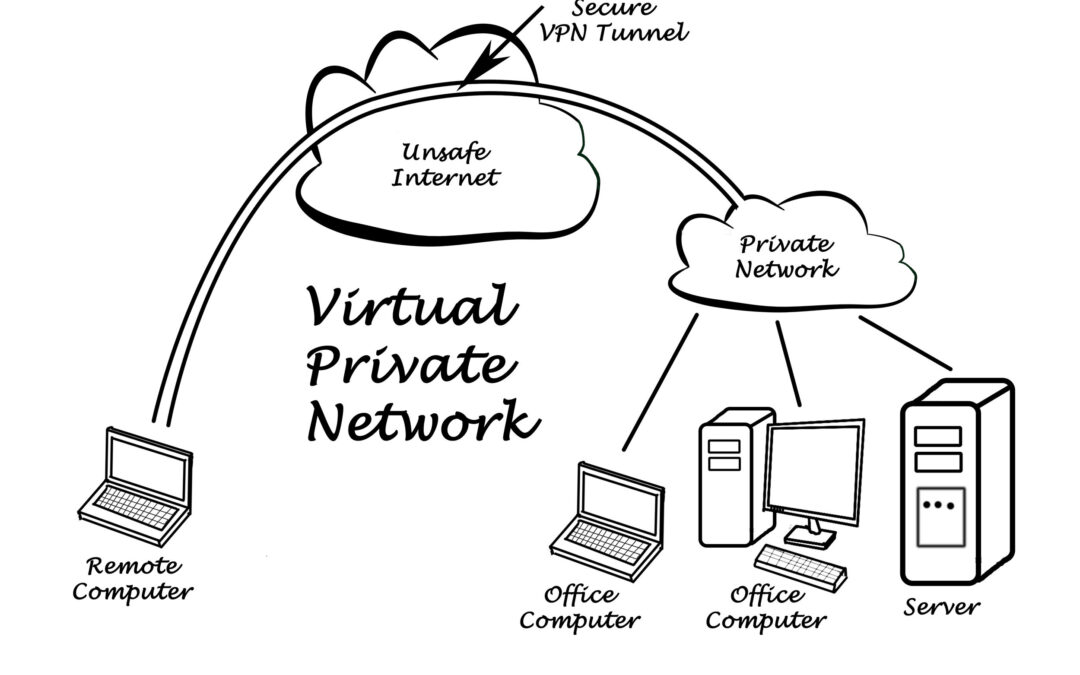For many of us, working outside the office walls is now “business as usual”. One of the many upsides to this is that technology is now catching up—and getting more competitive—with the tools needed to optimize working remotely. The advantage is in this is that there are now many options to choose from when figuring out how to communicate, collaborate, and access the core business systems that everyone needs access to at the same time.
WHAT IS A VPN?
A VPN (virtual private network) connects private IT networks securely using the internet. Using a remote access VPN, employees can access their ‘work computer’ using the remote desktop mechanism.
It’s usually likened to a tunnel that’s locked down to very specific entry points and is only available to certain users. It typically consists of a device on one network on one side and a different device on a different network on the other side. The internet is the tunnel itself, but it’s reduced to providing secure access only.
IS A VPN SAFE?
VPNs are one of the safest ways to access systems and data because they provide extra layers of security. Here’s how:
- VPNs don’t allow third parties to track the user’s IP address (your computer’s specific numerical code based on location and network) so your access and activity can’t be tracked without your knowledge.
- Unlike the regular browsers, VPNs don’t store browsing history, recent activity logs, log-in credentials, etc.
- If there is a glitch in the secure VPN connection, the connection is instantaneously cut, instead of allowing the user to browse unsafely.
WHAT DO I USE A VPN FOR?
Basically, anyone needing to access business systems from a personal or public network should use a VPN to do so. This shouldn’t be limited to workers who are employed to work remotely. Working from home when you’re sick and accessing QuickBooks, the website’s back end, or any customer information is a perfect example. The same goes for running out to a coffee shop when your building has a fire alarm, or the plumbing is being prepared.
VPNs are handy for personal use as well as professional. Let’s say you’re delayed at an airport and instead of working, you decide to do some banking and switch your car insurance. Using the airport’s public wifi network is handy, but it’s no secure. And any savvy hacker can exploit it to see your information. Using a secure VPN to access those websites doesn’t allow that data to be visible when someone pries into the network.
HOW DO I CHOOSE A VPN?
Warning: Just like everything in technology nowadays, VPNs are exploited by cybercriminals, too. There have been instances where hackers created fake VPNs that are essentially just malware that steal sensitive information. They promoted to be VPNs and they look and act like them, but all they do is grant the creator access to your systems without your knowledge.
For business use, make sure you pay for a professional service from a reputable company. If it’s for personal use, you may be able to use a free one, but make sure you do plenty of research before you download a free VPN. Oftentimes, too good to be true is actually true.
If you’re interested in setting up your business network to safely handle remote access, get in touch. We help small businesses set up simple yet highly secure and effective networks security all the time.

